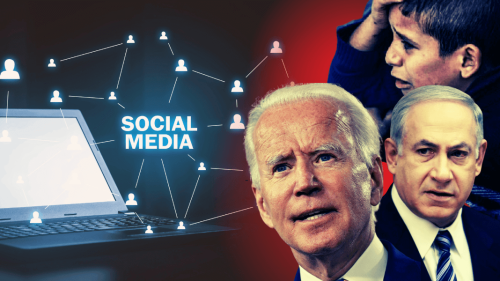Target Sudan
A few weeks ago I wrote about the campaign launched by the American Anti-Slavery Group to boycott a Canadian oil company for its investments in the Sudan. I didn't think I would be writing on this issue again so quickly.
A short while after my column, Charles Jacobs, president of the Boston-based Anti-Slavery Group, wrote a letter to the National Post charging that Talisman Energy was assisting the slave trade in the Sudan. In the following weeks, the U.S. Congress also intensified its propaganda. In fact, an article published by iviews.com even exposed the attempts to influence the American public through the program "Touched by an Angel." All of this appears to be paying off.
Last week, Canadian Foreign Minister Lloyd Axworthy announced a drastic policy shift on the Sudan. The decision came three days after U.S. Secretary of State Madeleine Albright said that Canada and other Western nations who invested in countries ruled by dictators disappointed her. She said that some governments have the mistaken view that foreign investment in countries under dictatorial rule will help the average citizen. With respect to Talisman Energy, Albright said "I am definitely going to talk to the Canadians about this." Within three days of this statement Axworthy threatened sanctions against Talisman, announced the appointment of a fact finder to investigate allegations of slavery and other abuses and an envoy to the peace talks being brokered by seven African states.
Coincidence? Don't think so. The American's have been trying to get Canada to enact sanctions since Washington made it a criminal offence to deal with the Sudanese about two years ago.
Talisman Energy is the largest independent oil and gas producer in Canada. It invested $735-million and holds a 25 percent stake in a Chinese-Malaysian-Sudanese consortium drilling in southern Sudan. The company's stock is listed on the Toronto, Montreal and New York Stock exchanges. The consortium established a refinery and started shipping through a 1,600-kilometer pipeline to the north of the country. To great fanfare, on August 30, the corporation loaded its first cargo of 600,000 barrels of Nile Blend crude for export. The celebrations were short lived as the anti-Sudan campaign intensified.
Surely there is a need to be concerned by allegations of human rights violations. And Canada must take quick action if Talisman is in fact helping the perpetrators to buy weapons and relocating people from their homelands. But it is equally important to make sure the facts are right before acting.
The situation on the ground in the Sudan is a lot more complex than what is popularly described in the media as northern Arab Muslims persecuting southern Christians and animists. This is clear to anyone who looks into it from an objective perspective. In fact, conflicts along tribal, racial and religious lines abound. As pointed out by Jim Buckee, president and chief executive officer of Talisman, even organizations such as Human Rights Watch have stated that all sides in the fighting must share blame for the present situation. Indeed, alleged slavery may be nothing more than the traditional practice of inter-tribal hostage-taking which is being revived and exacerbated by the civil war and the diversion of aid money to "free" these "slaves." Clearly an issue of increasing supply to meet the growing demand generated by organizations such as Christian Solidarity International and the American Anti-Slavery Group.
Instead of taking his marching orders from Washington which has propped up more dictators than any other nation on earth to ensure equal access to coca cola and other American-made "necessities," Axworthy should make informed, objective and independent decisions. As a first step, Axworthy should at least listen to Talisman and the Sudanese government.
According to an Associated Press report, the company has built a hospital, as well as roads and water wells in the south. The government's share of the profits is estimated to be in the range of $3-billion to $5-billion. The Khartoum administration has also pledged to build schools and hospitals both in the North and the South with its share. In fact, the new Sudanese constitution stipulates that 40 percent of the government revenue from the oil project must go to the producing southern states, 35 percent to the Southern Sudanese Co-ordinating Council and only the remaining 25 percent to the Federal government. Clearly, as a sovereign state, the government did not have to this.
Buckee says his company was aware of the pariah characterization of Sudan and did extensive investigations before investing. He has openly stated that the area being exploited is in the midst of a vast and open plain with no permanent towns or settlements because the area is always flooded during the rainy season. How can he make such a claim so openly if thousands have been uprooted?
By forcing Talisman to pull out of the operation, the government would end up hurting the people. Axworthy has adopted an independent policy on Cuba for this very reason. Why is the Sudan any different?
The appointment of Jim Harker as a fact-finder appears to be a step in the right direction on the surface. But Harker's background suggests that another individual must be appointed to accompany him. Harker is a former official with the left leaning Canadian Labour Congress (CLC). The CLC, as a policy, is not in favor of Canadian companies investing overseas. Moreover, as the Globe and Mail suggested in a recent editorial, he may not be the best man given his opposition to "authoritarian regimes (at least right-wing ones)."
There is too much at stake to blindly follow Albright's instructions on this one.

















